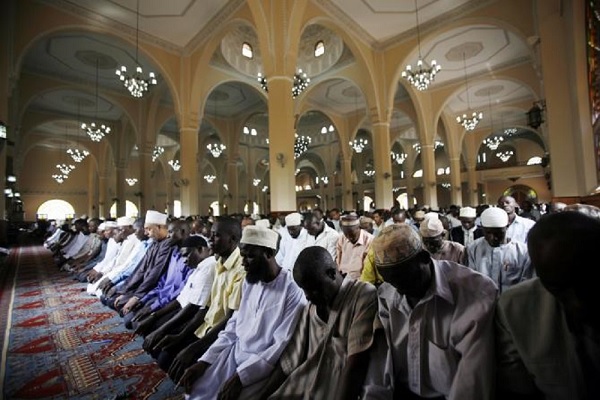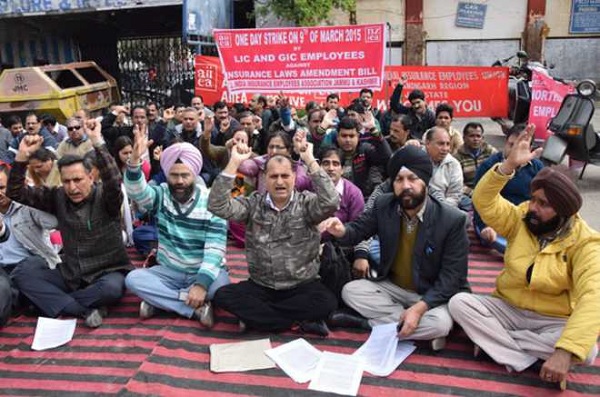
by admin | May 25, 2021 | Muslim World
 Kampala, Uganda, (IINA) – Uganda’s Muslim leaders have condemned the “ignorance” of church leaders trying to block Islamic banking legislation in the majority-Christian nation, FultonCounty news reported.
Kampala, Uganda, (IINA) – Uganda’s Muslim leaders have condemned the “ignorance” of church leaders trying to block Islamic banking legislation in the majority-Christian nation, FultonCounty news reported.
Earlier this year, parliament amended a finance bill to introduce Islamic insurance. However, church leaders led by Archbishop Stanley Ntagali, head of the country’s Anglican Church, has urged President Yoweri Museveni to reject the legislation.
In their petition made public late Thursday, they claimed the introduction of Islamic banking “opens the door to the ultimate operationalization of full-fledged Shariah law” and raised the specter of Islamic finance being used to fund terrorism.
Islamic banking avoids paying interest, which is forbidden in Islam, and instead offers returns to the lender.
“What criteria shows it’s a way for funding terrorism, this is a misconception of the Holy Qur’an,” Huda Oleru, a Muslim lawmaker for the National Resistance Movement, told Anadolu Agency.
She added: “Muslims in Uganda have been using secular banks because they had no option and this bill is a welcome move for those who do not want to pay interest levied by secular banks.”
Referring to the church petition, Oleru said the Qur’an “urges Muslims to help orphans, widows and the marginalized members of the society, that is the role of a responsible Muslim, they need to be educated more.”
Nsereko Mutumba, spokesman for the Uganda Muslim Supreme Council (UMSC), said the church leaders were “just ignorant of the Qur’an, it has nothing to do with ISIS, Boko Haram or any other group claiming to kill non-Muslims. Even countries in the Western world are embracing Islamic banking.”
The Bank of Uganda is currently establishing a sharia advisory board to regulate and supervise Islamic banking.
“This doesn’t mean having an automatic Muslim president,” Mutumba said. “We are the minority. Islam was the first religion to be introduced in Uganda and we have never forced anyone to convert to Islam.”
Commenting on the church leaders’ request for the president to send the bill back to parliament so passages relating to Islamic banking can be removed, Oleru said: “I will not support this amendment if it is returned to parliament.”
Muslims make up 12 percent of Uganda’s population, with Roman Catholic and Protestant Christians accounting for around 84 percent.

by admin | May 25, 2021 | Corporate Jobs, Economy, Employment, Government Jobs, News
 New Delhi:(IANS) Essential services, including transport and banking are likely to be affected on Wednesday (today) with 10 central trade unions going on a nationwide strike.
New Delhi:(IANS) Essential services, including transport and banking are likely to be affected on Wednesday (today) with 10 central trade unions going on a nationwide strike.
Taxi and auto drivers will also participate in the protest, All India Trade Union secretary, D.L. Sachdev told IANS here on Tuesday.
“Over 15 crore people would go on strike in the country to protest against the government’s anti-worker policies,” he claimed.
Over 90,000 auto-rickshaws and 15,000 taxis are expected to go off the road in the national capital, said Sanjay Chawla, who had mobilised about 40,000 auto drivers to support ruling Aam Aadmi Party (AAP) before elections.
He said 2.5 lakh posters have been put up across Delhi in support of the strike.
Sachdev said flights might also get delayed as aviation fuel supply was likely to be affected. He said the other sectors that would be impacted include coal, port and docks, steel, oil and gas supply.
All India Bank Employees’ Association (AIBEA) general secretary C.H. Venkatachalam said, “Across the country about 500,000 bank workers and officers would participate in the strike. About 75,000 branches will not work tomorrow.”
“Employees of the public sector, old private sector, cooperative and regional rural banks will take part in the strike,” he added.
However, employees of State Bank of India (SBI) and Indian Overseas Bank are not participating in the strike.
He said refilling of currency notes at automatic teller machines (ATM) by bank employees will also be affected.
“In those ATMs where refilling of currency note operation have been outsourced, the strike will impact them as well as the ATMs may go dry fast,” he added.
Sachdev said the government was offering Rs. 7,100 per month as the minimum wage, but the unions stick to their demand of enhancing it to Rs.15,000 a month as the government was not accepting the demand for equal wages for contractual workers at par with regular workers.
Bharatiya Mazdoor Sangh (BMS) and National Front of Indian Trade Unions, however, have decide not to participate the strike, citing “positive response” of the government.
The unions have called the strike to seek their representation in the labour reform process and wages to contractual workers at par with regular workers, apart from increasing the stipulated minimum wages to Rs.15,000.
In the financial services sector, employees of government-owned Life Insurance Corporation of India (LIC) and four non-life insurance companies would also be participating in the strike.
“Unions representing class 3 and 4 category of employees in LIC and the four non-life insurers have given the strike call,” J.Gurumurthy, vice president, All India Insurance Employees Association (AIIEA) told IANS.
The government on Tuesday urged the central trade unions to call off their countrywide strike on Wednesday. “I appeal to them to reconsider the call of strike in the interest of the workers and the nation,” Union Labour and Employment Minister Bandaru Dattatreya told reporters here.
Last week, the trade unions and a group of ministers led by Finance Minister Arun Jaitley had met twice.
Dattatreya said the government responded positively to nine out of the 12 demands, while no consensus was reached on the remaining.

 Kampala, Uganda, (IINA) – Uganda’s Muslim leaders have condemned the “ignorance” of church leaders trying to block Islamic banking legislation in the majority-Christian nation, FultonCounty news reported.
Kampala, Uganda, (IINA) – Uganda’s Muslim leaders have condemned the “ignorance” of church leaders trying to block Islamic banking legislation in the majority-Christian nation, FultonCounty news reported.
